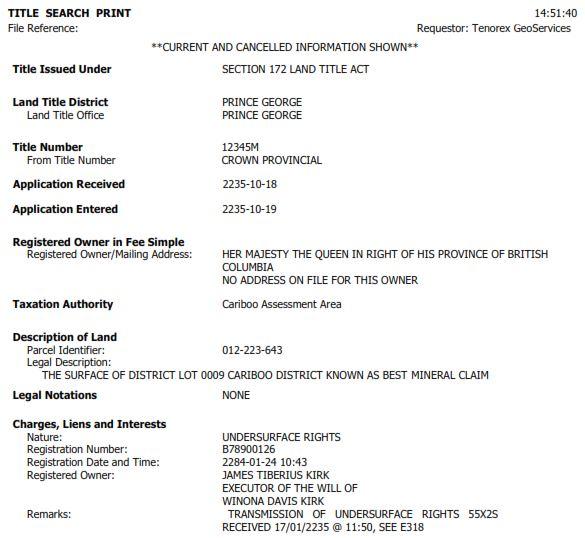A BC Title Search will provide the names and addresses of all registered owners of a property, the full legal description, and will identify all of the registered charges, mortgages and mortgage companies, liens and interests filed against a property. The transfer date is also provided showing when the property was purchased by the current owners.


For all ownership transfers of residential property, all parties in the title transfer process need to send their request with all supporting documents like property tax bills, current transfer deed to the Real Estate Lawyer. They attend the office of the real estate lawyer to sign all the required title transfer documents.
- What is title?
Title is a legal term meaning registered owner of real property. When your lawyer is preparing to transfer the title to your property, you will likely be asked who will actually own it. You may choose to list one name alone, fellow investors (a parent, for example) or, particularly in a marriage, both spouses. The issue of whose name is on the title is frequently important when one individual is putting up most or all of the money for the purchase. Title can also be held by other than individuals, such as partnerships and corporations.
- Who gets to be on Title?
Title is a legal term meaning registered owner of real property. When your lawyer is preparing to transfer the title to your property, you will likely be asked who will actually own it. You may choose to list one name alone, fellow investors (a parent, for example) or, particularly in a marriage, both spouses. The issue of whose name is on the title is frequently important when one individual is putting up most or all the money for the purchase.
- Why is the Title important when buying a home?
The Title is important when buying a property because you can only buy the property from the Registered owner, Power Of Attorney or whomever has the right to sell the property;
- How many people can be on title?
Title can be held by one person, or by two or more people as “joint tenants” or “tenants in common”. If the owners are registered as joint tenants, it means that if one of them dies, the property belongs to the surviving joint tenant. Only the last surviving joint tenant can leave the property to someone in his or her Will. If the property is held by tenants in common, however, if one of the owners dies, the property will belong to whoever is the beneficiary of the person’s estate. In other words, a tenant in common can leave their share of the property to whomever they wish in their Will because it does not automatically belong to the other tenant in common.